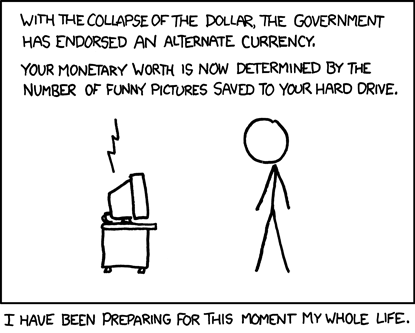We don't talk about NFTs: why they persist and what they mean for the law, law schools, and law libraries (IP)
Description
What I hoped we'd be using blockchain for in 2022: identity management, resource distribution, document authentication
What actually happened:
 XKCD alt-text: For the first time ever, the phrase 'I'd like to thank everyone at 4chan for making me successful and happy' is uttered.
XKCD alt-text: For the first time ever, the phrase 'I'd like to thank everyone at 4chan for making me successful and happy' is uttered.
Loved by collectors and investors, hated by environmentalists and gamers, non-fungible tokens have become one of blockchain's major use cases. The idea of collectibles on blockchains has been around for a while - since 2014. But the concept took off in 2017 when we were introduced to Cryptopunks and Cryptokitties. From there, NFTs spiraled into a $17B industry (as of 2021).
How did we get here and what's next? In this session, I'll address what NFTs are used for and what this means for us as legal educators. The session will:
- Explore the foundations of NFTs and blockchain.
- Critique NFTs use cases relevant to law and legal education.
- Develop tools law schools can use to teach NTFs and related technologies.
- Predict future uses for NFTs for good (if there are any).
Yes, XKCD predicted NFTs in 2008. Because of course it did.